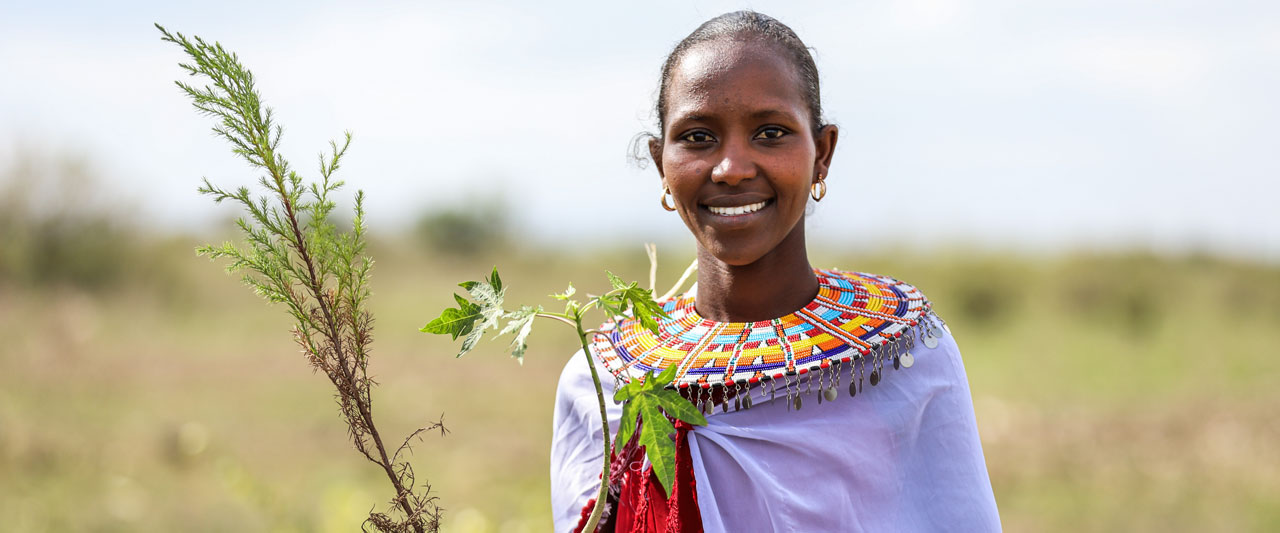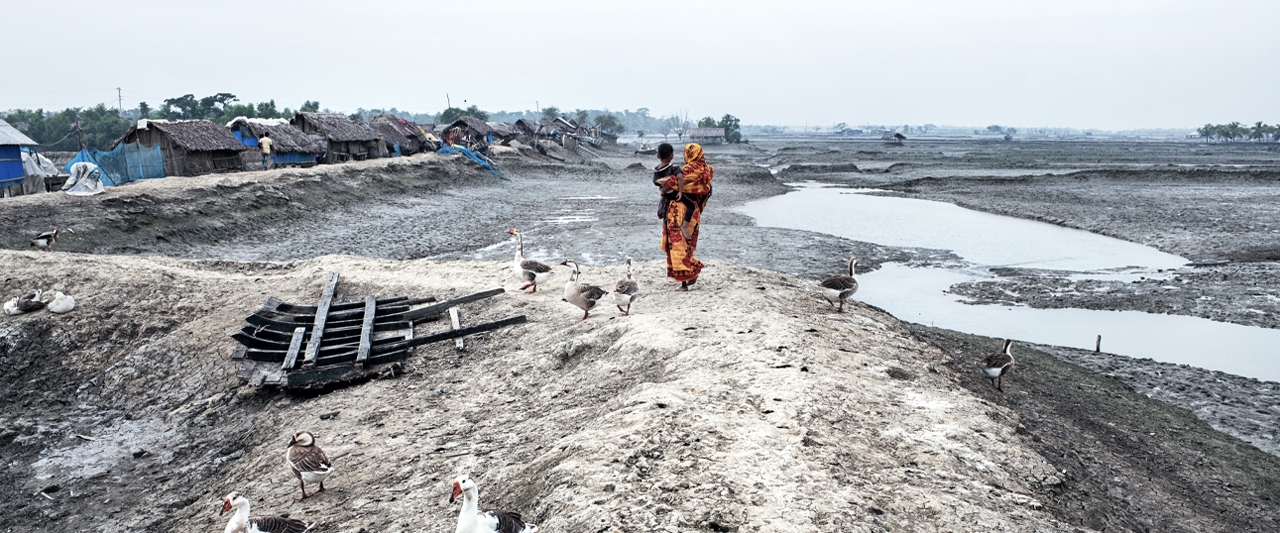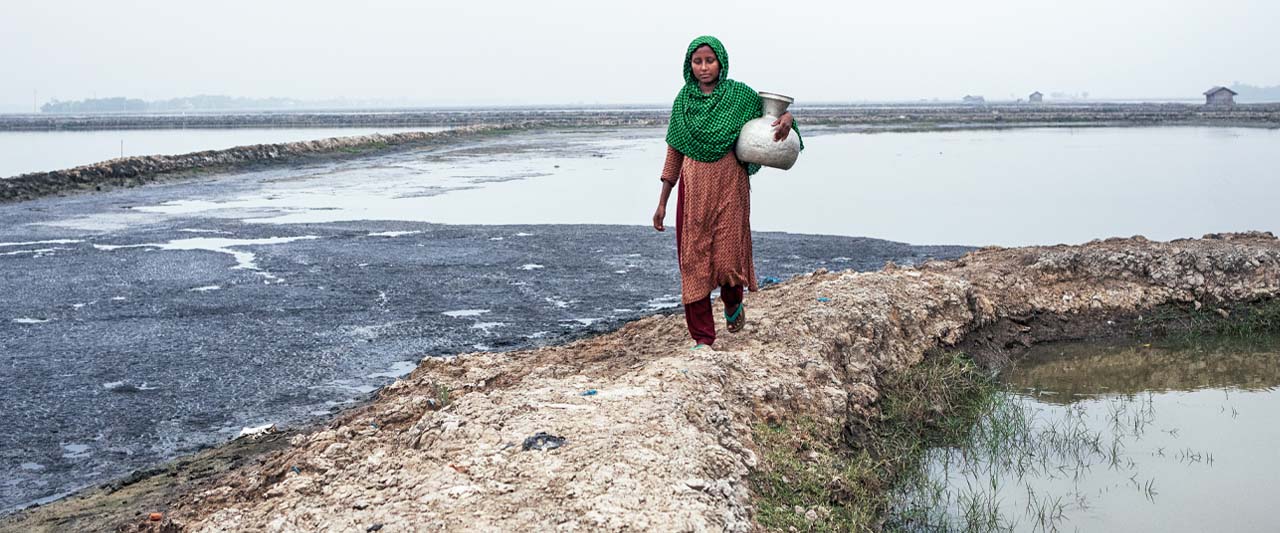Building the evidence
Main finding: The climate crisis is a reproductive justice crisis
Climate change is exerting multifaceted pressures on comprehensive sexual and reproductive health care for women and girls, according to Ipas research in countries around the world. As global temperatures soar and extreme weather events intensify, access to essential services—including family planning, pregnancy care and abortion—becomes increasingly difficult.
Our research shows that the climate crisis undermines the right to have a child, to not have a child, and to parent children in safe and healthy environments. Across all settings, we’ve documented consistent harms to sexual and reproductive health, including an increase in sexual and gender-based violence, child marriage, unintended pregnancy, abortion with unsafe methods, and maternal and infant deaths.
How climate change harms sexual and reproductive health
Climate change events
Sea level rise
Extreme weather events like cyclones, heavy rains, flooding, drought and heat waves
Direct impact on people’s lives
Damaged health facilities
Reduced access to reproductive health services,including abortion
Interrupted contraceptive use
Destruction of homes and livelihoods
Displacement and forced migration
Food and water scarcity
Exposure to heat and pollutants
Increased salinity of freshwater sources
Harm to sexual and reproductive health
Decreased reproductive autonomy
Unintended pregnancy
Death and injury from pregnancy, childbirth and unsafe abortion
Poor menstrual hygiene
Gynecological infections
Injury to reproductive organs
Sexually transmitted infections and HIV/AIDS
Abortion with unsafe methods
Sexual and gender-based violence
Transactional sex
Miscarriage and stillbirth
Premature birth and low birthweight
Changing fertility intentions
Preeclampsia and hypertension
Child, early and forced marriage and unions
Female genital mutilation
Key themes in our findings
Overall, our findings across varied geographies and cultures are strikingly similar. The harms of climate change on sexual and reproductive health are many and diverse, yet consistent in the ways they manifest and in their disproportionate impact on women and girls. Here are three important themes that emerge clearly across all countries where we conducted research.

Climate change fuels increased sexual violence

Climate change damages health systems

Climate change hits Indigenous communities hardest
About our research
We’re working to build the evidence base on how the climate crisis impacts sexual and reproductive health-related behaviors, decisions and outcomes. Our research is participatory and our approaches value the expertise and lived experience of those most impacted by the crisis—not only to understand the impacts, but also the solutions.
We’ve put Indigenous people and local communities at the center of our investigations, exploring the intersection between reproductive health and climate change in diverse environments across Africa, Asia, and South America—including coastal and island communities, mountains and high plains, and arid lands. So far, we’ve conducted research in seven countries: Bangladesh, Bolivia, Ethiopia, Indonesia, Kenya, Mozambique and Nepal.
Voices from around the world paint similar pictures
Whether in a rural, mountainous village in Nepal or a coastal community in Mozambique, the people most impacted by climate change and extreme weather events share similar stories of a greatly diminished ability to control their own reproductive health and to choose when, whether and how to have children.
Women have solutions
That’s why we need women-led climate justice
Our research shows clearly how women play a leading role in helping their families and communities survive extreme weather events and adapt to climate change. They know what they need to survive and thrive. But opportunities for women to participate in climate action decisionmaking is insufficient—especially at the leadership level.
Climate action that is not gender inclusive risks making existing problems even worse. That’s why Ipas research and programs addressing climate change focus on listening to women and girls and centering their needs. In Mozambique and Bangladesh, our study participants brainstormed ways to lessen the impact of climate change on women and girls. You can read about their recommendations in this overview of our findings.

In Kenya, women take the lead on adapting to climate change
In drought-stricken northern Kenya, Ipas and local partners are working with women to devise solutions for resilient communities.

Advocating for women-led climate justice

Findings from Mozambique and Bangladesh:
Climate change impacts reproductive health

